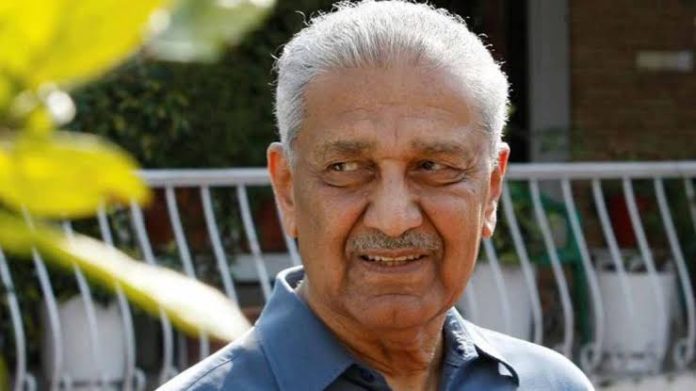Abdul Qadeer Khan, born on April 1, 1936, in Bhopal, India, and passing away on October 10, 2021, in Islamabad, Pakistan, was a Pakistani engineer who played a pivotal role in Pakistan’s nuclear weapons program. Known widely as the “Father of the Pakistani Nuclear Program,” Khan was also involved for years in a black market for nuclear technology. This included selling or trading uranium-enrichment centrifuges, nuclear warhead designs, missiles, and expertise to countries like Iran, North Korea, Libya, and possibly others.
Khan’s journey began against the backdrop of India gaining independence from Britain in 1947, leading to the formation of Pakistan. He moved to West Pakistan in 1952 and graduated from the University of Karachi in 1960 with a degree in metallurgy.
He pursued further studies in West Berlin and Delft, Netherlands, where he obtained a master’s degree in metallurgy in 1967. He later earned a doctorate from the Catholic University of Leuven in Belgium in 1972. During this time, he married Hendrina Reterink, and they eventually moved to Pakistan in 1975.
In 1972, Khan joined the Physical Dynamics Research Laboratory in the Netherlands, where he gained access to information on ultracentrifuge technology used in uranium enrichment. Motivated by geopolitical events, including Pakistan’s defeat in the 1971 war with India and India’s nuclear test in 1974, Khan wrote to Pakistan’s Prime Minister, Zulfikar Ali Bhutto, offering his expertise in developing an atomic bomb using uranium enrichment.
Bhutto encouraged Khan to assist Pakistan in achieving nuclear capabilities. Khan then clandestinely acquired centrifuge drawings and established a network of European suppliers for nuclear technology. He relocated to Pakistan in 1975 and founded the Engineering Research Laboratory (later renamed Khan Research Laboratory) in Kahuta, near Islamabad. Here, he developed Pakistan’s uranium-enrichment capability and collaborated with China to acquire nuclear weapon designs.
In the 1980s, Khan expanded his influence by setting up front companies in Dubai, Malaysia, and other locations. Through these entities, he facilitated the transfer of nuclear technology to Iran and North Korea, among others. His activities came to international attention in 2004 when he was arrested for nuclear proliferation. Despite his confession and subsequent pardon, Khan’s actions continued to be a subject of scrutiny and controversy.
Abdul Qadeer Khan remains a polarizing figure: celebrated by many Pakistanis as a hero who bolstered national security against India, yet criticized globally for his role in nuclear proliferation. His legacy underscores Pakistan’s emergence as the first Muslim nuclear power, leaving a lasting impact on regional and global security dynamics.


